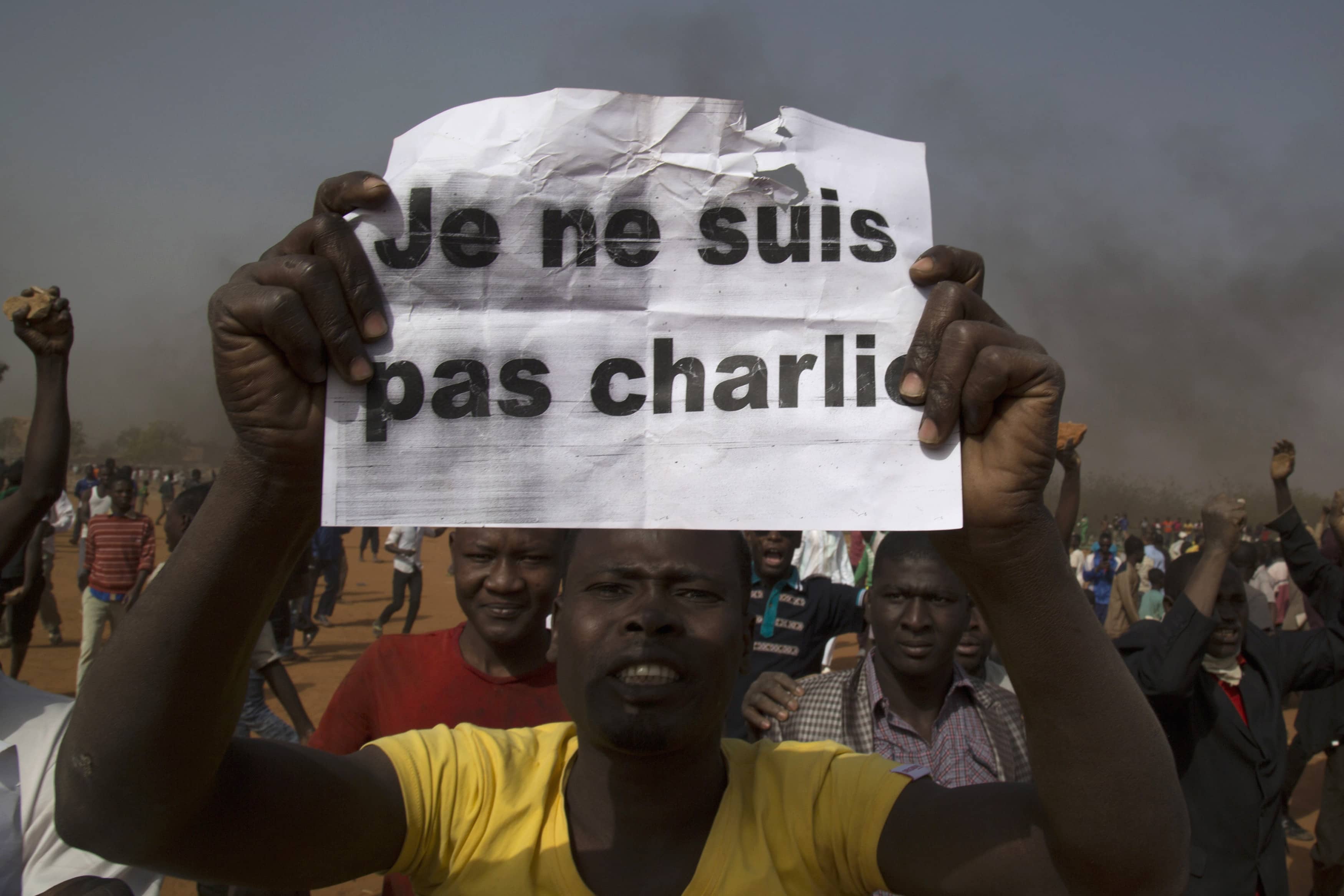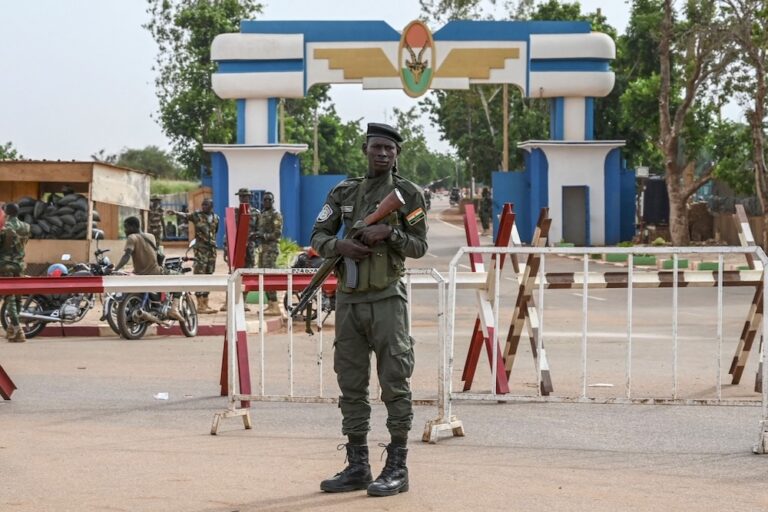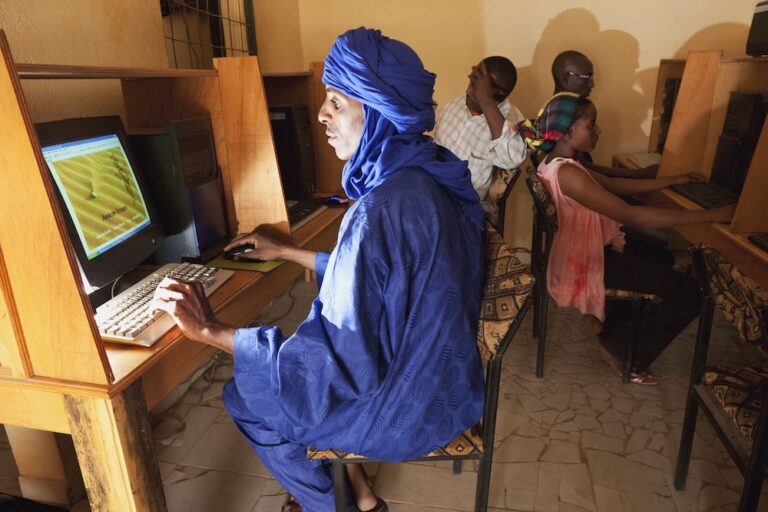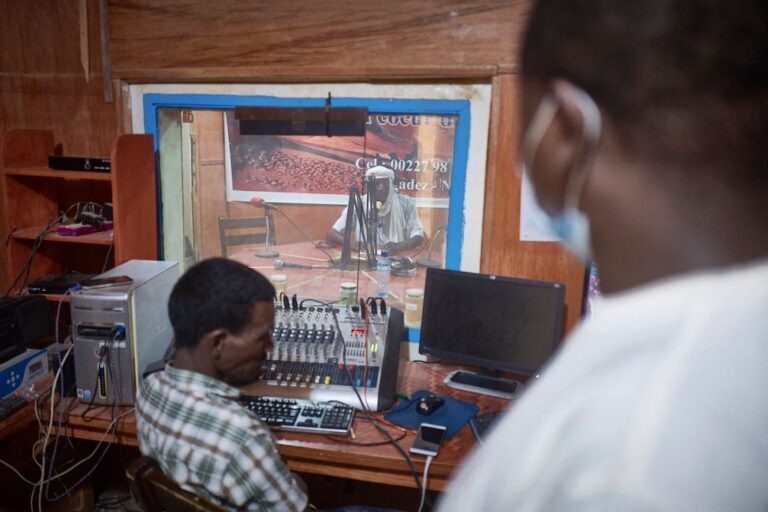During an anti-Charlie Hebdo demonstration on 17 January and during an opposition march the next day, the police stormed the headquarters of four news organizations and physically attacked at least eight journalists.
This statement was originally published on rsf.org on 20 January 2015.
Reporters Without Borders deplores the fact that privately-owned media were attacked by police during demonstrations in Niamey on 17 and 18 January although President Mahamadou Issoufou has assured the international community he is committed to media freedom.
During an anti-Charlie Hebdo demonstration on 17 January and during an opposition march the next day, the police stormed the headquarters of four news organizations and physically attacked at least eight journalists. “These attacks on media are extremely worrying,” said Cléa Kahn-Sriber, the head of the Reporters Without Borders Africa desk. “It is vital that the media should be able to work freely, especially when protests are taking place.
“On 11 January, President Issoufou took part in a march in Paris to condemn violence against journalists and yet, less than a week later, the police are attacking news media in Niger – preventing the production and free flow of information – without being taken to task. We urge him to send a clear message to his government that such behaviour must not go unpunished.”
Boubacar Diallo, the former head of the Press Club, told Reporters Without Borders: “Journalists are only too often harassed by the police in Niger, although the police have a duty to protect them in all places where they are doing their reporting.”
According to a communiqué issued yesterday by several organizations that represent media professionals, the police stormed into pro-opposition Radio Télévision Ténéré during the protest against Charlie Hebdo’s cartoons on 17 January and forced it to stop broadcasting.
Claiming they had an order “from above,” they blocked access to the building and physically attacked the station’s personnel. The same day, police fired teargas at the headquarters of the Dounia media group, although it is owned in majority by a close ally to the president.
During the demonstration organized the next day by the political opposition, police used batons and teargas to attacks journalists with five privately-owned TV stations – Canal 3 Niger, Liptako, Africable, Niger 24 and Saraounia – and with Radio RM, Niger’s first-ever privately-owned radio station.
The headquarters of Bonférey, a media group critical of the government, received a visit from ten policemen, who beat a producer and a reporter and arrested them, only to release them later without giving any explanation for their arrest.
In response to all this violence, the High Council for Communication issue a timid statement reminding the police of their duty to protect journalists but failing to condemn their reprehensible behaviour.
Local observers describe the current situation of freedom of information in Niger as critical. As well as the violence and arrests of the past few years under President Issoufou, the government is in the process of extending its financial grip over media companies with disastrous consequences.
The president’s office is funding the production of a score of newspapers and is giving monthly contracts to five TV stations so that they broadcast PR content for the government.
“The authorities are confusing public relations with bribery,” Diallo said. This funding tends to “bring the media to heel.” It can be seen in their news programmes, which now take a different editorial line, and in the changes in their other programmes, which now focus on official government events.
Niger is ranked 48th out of 180 countries in the 2014 Reporters Without Borders press freedom index.



